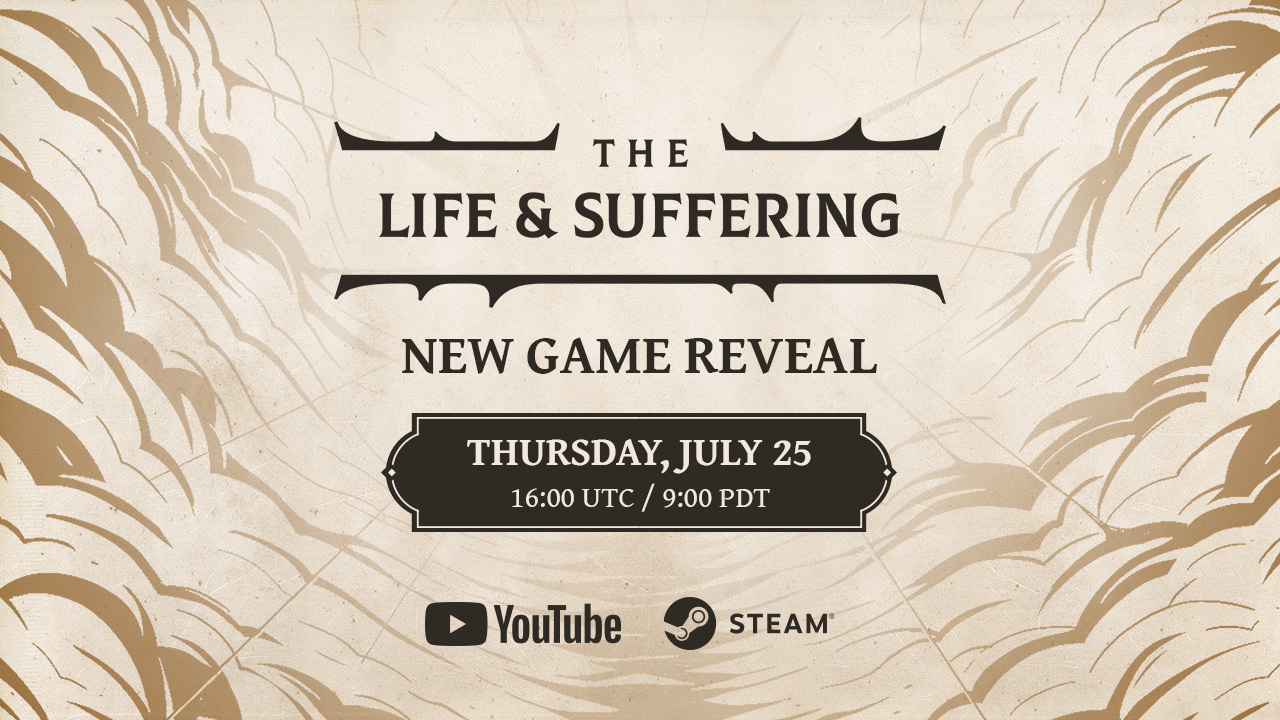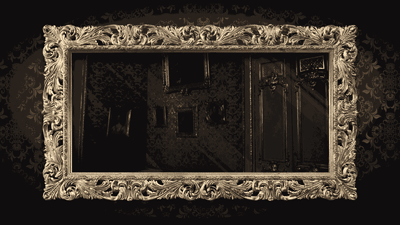In the beginning there was the God-Creator, in his godly way he created the world, leaving a huge pillar in the middle so that everyone would know who was in charge. And in the end he made himself children, among whom were the Twins, after which he retired.
The children had fun as best they could, and eventually decided to fill the world with life. The Twins created the arkns - ideal creatures, tall, slender, strong, healthy and long-lived, there were also humans - a pitiful likeness of the arkns, who could only strive for their perfection.
The other gods were not so cool and their races were created with defects. The vengi are red-skinned people who can only work hard, seeing neither the beauty of the world nor the greatness of God, the al-atari are snake-like creatures, skilled magicians and scientists, soft-bodied and sickly, and the skrides are beast-like green creatures, true warriors, completely devoid of reason and common sense, totally not orcs.
Somewhere around 500 before empire founding (BEF), the arkns establish settlements. In 315 BEF, Eterna is built - the eternal city, which will become the capital of the Empire. 25 years later, a centralized state is formed, ruled by kings, and the laws are carved on 12 pillars.
Later, the kings will be overthrown by noble families, and the period of the republic will begin. Now the country is ruled by two consuls, who are replaced every year. For the next 250 years, the state of the arkns will live a normal antique life: suppressing uprisings, fighting with neighbors, noble houses’ competitions in coolness and so on. Of the individuals, only Jorian Tempest is mentioned - the sage who invented money.
All this lasted until 10 BEF, when the skride tribes attacked the arkns. Not only were the skrides themselves much more skilled warriors, but they also took the majority. And everything could have ended differently if not for Jorian Tempest (not the one who invented money), who, defending Eterna, decided to open the gates, lure the enemies there, and then set it on fire. Almost nothing remained of the capital, but these are nuances - the enemy was defeated.The Senate, without hesitation, grants him the title of Emperor (commander-in-chief) and grants him the position of Grand Consul for life, however, he barely had time to enjoy the laurels, and died that same year from severe wounds, but the Tempest family rose to prominence.
Jorian's younger brother, Cornelius, comes to power and immediately abolishes the republic, declaring hereditary power. The people, however, were not so much offended, rather the opposite - they celebrated for three whole days. Perhaps only the Milanids were upset - one of the five noble families, always opposed to the Tempests. One way or another, the only conspiracy that was attempted was exposed. During his reign, Cornelius solved many of the Empire's problems, and significantly expanded his lands, conquering almost all the tribes, and only the vengi remained undefeated. In the year 23, in the Battle of the Three Armies (the name came from the fact that the Empire already had allied al-atari forces on its side), Cornelius' troops were defeated, and he himself almost single-handedly defeated the entire army, but fell at the hands of a insidious killer.
Power was supposed to go to the 300-year-old inventor Jorian, who became famous while still a consul, but he refused it and the reins of power passed to Cornelius's son, who was also named Jorian. He ruled for 150 years, these years were called the Golden Age - there were no wars during his reign, cities were rebuilt, philosophy, sciences and magic arts developed. He ruled until 172, and then died peacefully in his sleep at the honorable age of 427.
The next emperor was the promising Trancus I, who was brutally murdered as a result of a conspiracy by the Milanids. Trancus' sister Julia wanted to take power into her own hands, but the army did not appreciate this and quickly removed the woman, installing the young and promising Glaedus I, who slipped and died at his coronation.
In 183, the Empire decided to go after the vengi again. Emperor Eiric I appointed Char Milanid as the commander of the army that was to finally destroy this annoying tribe. The vengi were famous for their powerful magick, so, losing the general battle, they created the Great Spell of the Reverse Mirror. It is not clear what the essence of this trick was, but in any case, it did not work as intended.
«And from the Menhir a figure separated, equal in height to it, and it had two faces, one more terrible than the other, and in its hand a rainbow blazed, and whoever saw these faces fell dead, not knowing rebirth.”
Later, this figure will be called Two-Faced. The monster was uncontrollable, so the arkns had to retreat, however, the vengi were also defeated, and later cursed by Two-Faced, so they became hunchbacked and forgot how to cast spells.
Two years later, Milanid will invade these lands again, but this time he will win. Char called the captured lands Magra, which is translated from Arknian as "The Last" - from now on, all land is under the control of the Blessed Empire, and Magra is the nest of the Milanid family.
In 187, courts of honor were introduced, which regulated the rules of behavior of nobles. One of the punishments was the so-called Divine Judgement - a duel, the loser of which died forever.
The next date in chronology is 410 - almost 250 years later, skrides attacked the Empire. With difficulty, their invasion was repelled and the pleased Emperor Eiric I, having learned about it, died happily. After him came Urban I, who loved chess so much that he died during one of the games in 623. The new emperor was Eiric II.
One of the most significant events in the world’s history took place in 700, when two figures descended from a radiant pillar - they were the Twins, who decided to personally spread their faith. The Younger went to Magra, where Agavles Milanid openly persecuted the Twins’ faith. Apparently, upon the arrival of one of the Twins, the proconsul began to lose his ground, which angered him greatly, and he decided to go for broke.
“The proconsul Agavles, still breathing threats and murder against the disciples of the Our Lord, came to the high priest of the temple of the false goddess Amelcarta, so that he would order all the inhabitants – be it humans, vengi or al-atari - of the villages and hamlets near Anizotte, the capital of the province of Magra: whoever finds followers of the Teaching, both men and women, must bind them and bring to Anizotte.”
And those humans and vengi who already worshiped the Younger were brought to the square, and the executioner had already sharpened his axe, for the proconsul had ordered their execution publicly, in order to frighten those who doubted and inclined their ears to the One Faith. At the appointed hour, Agavlеs, dressed in royal clothes, sat on an elevated place, and brought his son, Char, so that he would rejoice in death and blood.
Вut the Younger was still a god, so he struck Agavles, and he was eaten by worms, and with him about 12 thousand more who did not repent. So, once again, goodness won: Magra believed, the former captain of the guard Ignatius became a prophet, and Char Milanid forever hated the Twins. Not everyone accepted the faith: the vengi, skrides and atari did not "get rid of sin" and continued to worship false gods. The latter doubted more than anyone else, which is why they were conditionally divided into two peoples - al-atari (faithful) and ar-atari (infidels). The latter suddenly died out after about 100 years.
The Tempest family grew even stronger. Now, if someone not of imperial blood took the regalia, he immediately fell dead, and if it was not the eldest of the family, he went mad.
The earthly path of the Twins ended in 733, a year later the first church council was held, gathering clergy from all over the Empire, where many important decisions were made. Magick was banned, sorcerers were forced to renounce it and accept the Twins, and for those who did not, the Holy Inquisition was created. The fleeing wizards created a state - Magocracy. Later, other councils will be held, where the Order of Holy Warriors will be formed (which will soon be dissolved due to rebellious sentiments) and sacred texts will be canonized.
In 827, Eiric II dies and power passes to his son Eiric III, but Glaedus I (who died at his coronation) suddenly revives and claims the throne, which, of course, is refused. The period of dual power begins.
This period was used by the same Char Milanid, who declared himself emperor, but his troops were defeated and he had to retreat to the capital of Magra - Anizotte. At this time, Eiric III still decided to undergo the test of regalia and went mad. The period of dual power ended - Glaedus I became emperor again.
In 832, the siege of Anizotte began. In the sixth month, the city was taken thanks to a great anti-magic spell cast by the priests of the Empire. For another month, the Empire's troops besieged the palace of Char Milanid, and in the end, it was destroyed and the main rebel executed.
It is not clear how much Char Milanid contributed to the devastation of Magra. According to the official version, sensing imminent defeat, he dried up the lands with spells, but how did he do this under anti-magic? It is quite possible that this is just part of the imperial propaganda against the hated House, and the lands were destroyed in countless wars. In any case, the Milanids remained in power with a bit of hatred for the Tempests.
Around the same time, a church schism occurred, and as a result of serious conflicts, pogroms took place across the country - the vengi and al-atari were almost exterminated, those who remained were isolated.
In 945, Glaedus I abdicated the throne in favor of his son Utter I, and he himself disappeared without a trace. The new emperor wanted to solve the problem with the Milanids, so one of Tempests was appointed proconsul of Magra. The nobles were furious, because this was a serious attack on their ancient rights - the situation began to escalate.
The Twins, in order to solve another worldly problem, gave the patriarch of Magra a sprout of the White Tree, which he carefully planted in Anizotte.
The tree began to grow, and such goodness emanated from it that all filth began to disappear from the Empire. And the higher the tree became, the fewer creatures of the false gods remained in the lands of the arkns. In 970, the al-atari and the vengi died out, later almost all the mages disappeared from the Empire - they simply stopped being born.
In 1078, a new emperor came to power - Utter II.
In 1095, the second church schism occurs - Patriarch Thomas preaches about the equality of classes. The youth meanwhile began to pervert and take an interest in al-atari, spending entire evenings in their style, as did Octavia Milanid.
In Magra, the preconditions for an uprising appear. A certain commoner, Sophia, who had escaped from the arkn Dorius Otto, had been nourished all her life by hatred for the lots and the nobility in particular. Thanks to her magical abilities, she organized a circle in Eterna, was caught by the secret chancery, but, having made a deal with the chief Felipe, was released and returned to Anizotte, where she secretly continued to prepare the uprising. And in 1146, it finally happened.
The uprising had a great influence, because there were dissatisfied people in every class. The commoners were tired of oppression, the priests increasingly renounced their lot and converted to the new faith, and the nobles were not satisfied with the governor Gaius Tempest, who governed the lands of the Milanids. In general, the rebellion had every chance of success. However, it was not destined to come true. Yes, Guy Tempest managed to win back the title of governor, and Sophia and her associates went underground, where she founded the organization "Soil and Freedom" (or "The Last Drop" - the name varies).
In 1150, Time of Troubles came to the Empire, when troops of magocrates landed on the lands of the arkns, and in response, Utter II sent the strongest legions. A battle took place, called the Battle of the Sand Demons, which the Empire lost miserably. The people, having learned of this, stormed the emperor's palace, but not finding the monarch, began to smash the capital. Sophia took advantage of this, announcing the abolition of the privileges of the upper classes and calling on the commoners to establish a new order. Entire provinces joined the uprising, only the southeastern lands, including Magra, remained loyal to the crown.
Meanwhile, the Magocracy army approached Anizotte, but was unable to take the city because of the White Tree, which blocked magick. The wizards were forced to negotiate with the Empire. They negotiated, however, with the new ruler - Jorian III, who, not knowing about the state of Utter II, decided to take a risk and undergo a test of regalia. As it turned out, the former emperor was captured by the rebels, who, of course, did not kill him, but the proud monarch died himself - he was struck by a stroke from the insolence of the revolutionaries.
In about a year, Jorian III completely suppressed the uprising and regained control of the lands. And everything would have been fine, if not for the Milanids - Duke Agavles IV, apparently joining the Magocracy, killed the emperor. The new ruler was Flavius I, whose first decree ordered the extermination of all Milanids up to the 7th generation; now this family did not interfere with the state, but more serious problems appeared.
In 1151, a man who called himself the Elder began to be seen more and more often in Anizotte. One day, he was found dead under the White Tree, which then withered away. Everyone found it hard to believe that some old man really was the Elder, because before that, the Twins appeared in the form of arkns, not humans. In any case, the great gift of God was gone now - the Gods had turned away from the Empire.
The popularity of the atari communities grew. Humans and arkns with inexplicable interest sought to be reborn in the bodies of an almost extinct race.
Flavius I put Gaius Tempest at the head of the government, who spent the next 8 years dealing with the consequences of the rebellion. The Great Chancellor could simultaneously burn entire cities or easily negotiate.
“By 1166, in his fifteenth year in power, Tempest-Marcus [- not sure if it is Gaius or not ] had managed to suppress all uprisings, destroy conspirators among the nobility, stop the church schism, and defeat the troops of the invaders. The Milanid family, from which the emperor's murderer came, was completely destroyed, after which the elements calmed down.”
It can be concluded that Flavius I was an aggressive and not entirely predictable person. For example, he divorced his wife when she gave birth to a couple of boys and a girl, and dismissed Gaius Tempest from his post as chancellor and sent him to rest at sea. The emperor himself had no time to rest - in 1172, Flavius declared war on the Magocracy. The monarch personally led troops to a foreign country, which, of course, had a detrimental effect on the internal affairs of the state.
And then the misfortune - Emperor Flavius is brutally killed by his own people. For the second time in a row, the guarantor of the divine will of the Twins dies at the hands of ordinary subjects. The gods decided to finally punish mortals - the next emperor of the Blessed Arknian Empire will be the last.
The last emperor, Cornelius II, was the incarnation of the Younger. Seeing what the world had become, he condemned the state to the so-called "16 years of suffering." This Cornelius was quite cruel and sophisticated - every year he came up with new ways to mock the people: he either cut off their limbs, forced them to repent 24/7, burned houses, luxury items and cultural objects. And in the 16th year, the Judgement began.
“And the Emperor Cornelius began his campaign from Eterna, from the very north and moved south, passing Judgement on everything living and nonliving, visible and invisible. And he destroyed all the cities, castles and villages along the way. And if they did not resist him, then death for the rich and the poor, the simple and the noble, was easy and desirable, but if they did resist, then there was no end to the suffering. And the living envied the dead, but did not find death.”
Anizotte was the last city the emperor came to. When The Younger entered the capital of Magra, the townspeople fought. Apparently, having suffered a defeat, Cornelius II decided to resurrect the inhabitants and give them the opportunity to touch the White Tree again and say goodbye to this world. The last to die was the god himself, who created all this.





































